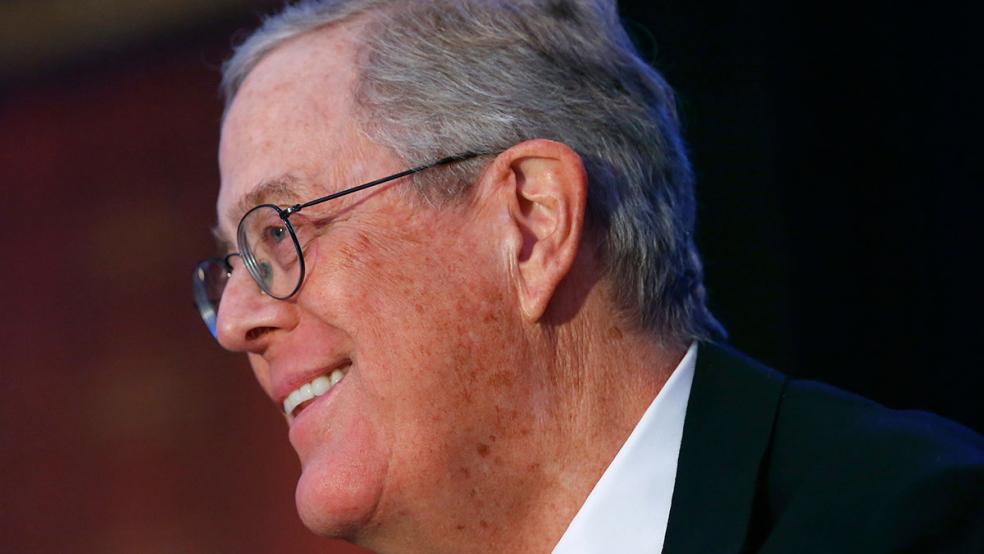It’s been a rough couple of weeks for Charles and David Koch, the right-wing billionaire industrialists whose spending to influence U.S. politics has had such a powerful effect over the past several years.
The Koch brothers, owners of Koch Industries, have poured untold millions of dollars into the political system in recent years, setting up reasonably well known pressure groups, such as Americans for Prosperity, as well as dozens of obscure entities that channel money to the causes and politicians they support.
Last week, The Washington Post ran a tendentious article about the Koch brothers’ tar sands holdings in Canada that apparently misstated the extent of their interests and drew a tenuous connection between the brothers and the debate over the Keystone XL pipeline, which they will not, in fact, be using. The authors of the piece later explained that they had written the piece because “issues surrounding the Koch brothers’ political and business interests will stir and inflame public debate in this election year.”
Related: A New Tidal Wave of Money Could Decide Senate Races
On the same day The Post piece ran, The New York Times reported that Democrats have begun spending on political ads designed to counter those funded by the Koch brothers – some of which will reportedly specifically target the wealthy siblings.
The Kochs – who, to their credit, have spent tens of millions of dollars on philanthropic activities – have been attacked by the editorial boards of major newspapers, pilloried in news articles, and denounced repeatedly as “un-American” on the floor of the U.S. Senate by Majority Leader Harry Reid (D-NV), who calls them “shadowy billionaires” who want to “rig the system to benefit themselves and the wealthiest one percent.”
Let’s stipulate a few things here. Yes, the Koch brothers are extraordinarily wealthy, and therefore have a voice in the American political process that dwarfs that of almost any other individual or organization. Yes, they adhere to a very right-wing ideology that seems to elevate a hatred for taxes, regulation, and government in general above many things that other Americans consider important, such as the environment and the welfare of the poor.
Related: Reid Calls Obamacare Victims 'Liars'
And yes, the Koch brothers are, indisputably, using holes in our tax code, and by extension our campaign finance system, to expand their influence over politics and policymaking in the United States. A recent analysis by ProPublica, for instance, demonstrated how the Kochs have created a huge network of nonprofits to funnel money to causes they support, many of which are organizations protected from public disclosure of their donors by the Supreme Court’s 2010 decision in the case Citizens United v. FEC. But they appear to be doing it while remaining true to the letter of the law.
In a very fundamental sense, Reid and others attacking the Koch brothers’ methods are wrong, and they are wrong because what the Kochs are doing remains legal. Whether we like it or not, exploiting a loophole in the rules to get what you want is pretty much as American as Mom and apple pie. (Nuclear option, Sen. Reid?)
Related: Republicans Gain Momentum in Close Fight for U.S. Senate
The Koch brothers are really only a symptom – the most recent flare-up of an ugly rash on the American political system that signals a deeper disease. There is a fundamental disconnect in the United States between our commitment to democracy and our commitment to free speech. We don’t want to tell a man he can’t put his money where his mouth is, but at the same time, we don’t want one man, with all the money, to be the only person voters can hear.
Until we confront that issue honestly, and make the difficult, but necessary, decision about which element of our country’s history we value more, we ignore the real issue.
The problem is not that the Koch brothers are using their immense fortune to purchase our Democracy. The problem is that our Democracy is for sale in the first place.
Top Reads from The Fiscal Times:





